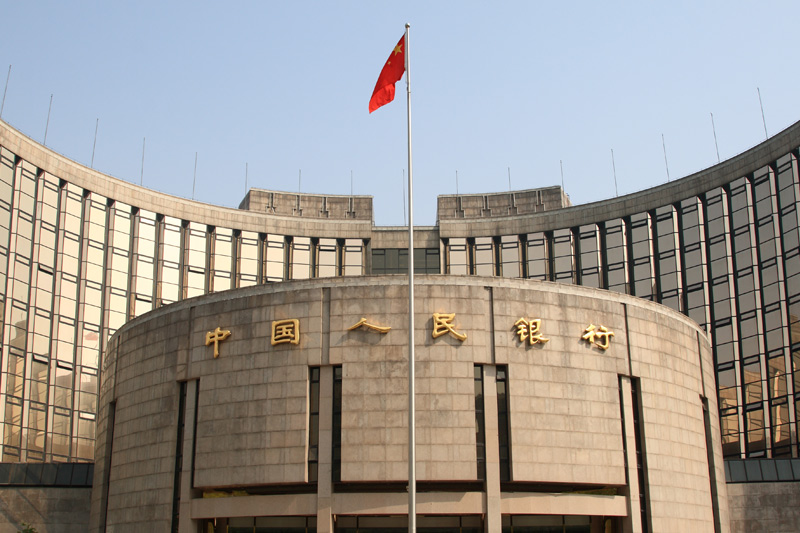Investing.com - China's central bank injected funds into the financial system on Tuesday for the first time in two weeks, easing fears of a repeat of the liquidity squeeze that gripped markets in June.
The People's Bank of China pumped 13 billion yuan into markets via open market operations, according to a statement on its website.
The PBOC raised the rate for its seven-day bond reverse repurchase agreements to 4.1%, up from 3.9% in August, indicating that it is moving to tackle monetary conditions in the wake of data showing increased capital inflows and rising inflation.
The central bank had held back from injecting liquidity into the banking system since October 15, driving the benchmark seven-day repurchase rate up to a four month high of 4.88% last week.
The central bank has used open market operations as the main tools to adjust money supply in the interbank market since July last year.
Tuesday’s injection allayed concerns that China would tighten monetary policy in order to curb inflation, after excess liquidity fuelled rises in inflation and house prices in September.
During the June cash crunch interbank rates rose sharply and the financial system momentarily seized up before the central bank intervened with targeted liquidity injections.
Investors believe the chances of a credit crisis are decreasing ahead of a Communist Party summit due to take place in November, amid expectations that authorities will take steps to reduce local-government debt levels and clamp down on risky lending practices.
The People's Bank of China pumped 13 billion yuan into markets via open market operations, according to a statement on its website.
The PBOC raised the rate for its seven-day bond reverse repurchase agreements to 4.1%, up from 3.9% in August, indicating that it is moving to tackle monetary conditions in the wake of data showing increased capital inflows and rising inflation.
The central bank had held back from injecting liquidity into the banking system since October 15, driving the benchmark seven-day repurchase rate up to a four month high of 4.88% last week.
The central bank has used open market operations as the main tools to adjust money supply in the interbank market since July last year.
Tuesday’s injection allayed concerns that China would tighten monetary policy in order to curb inflation, after excess liquidity fuelled rises in inflation and house prices in September.
During the June cash crunch interbank rates rose sharply and the financial system momentarily seized up before the central bank intervened with targeted liquidity injections.
Investors believe the chances of a credit crisis are decreasing ahead of a Communist Party summit due to take place in November, amid expectations that authorities will take steps to reduce local-government debt levels and clamp down on risky lending practices.
